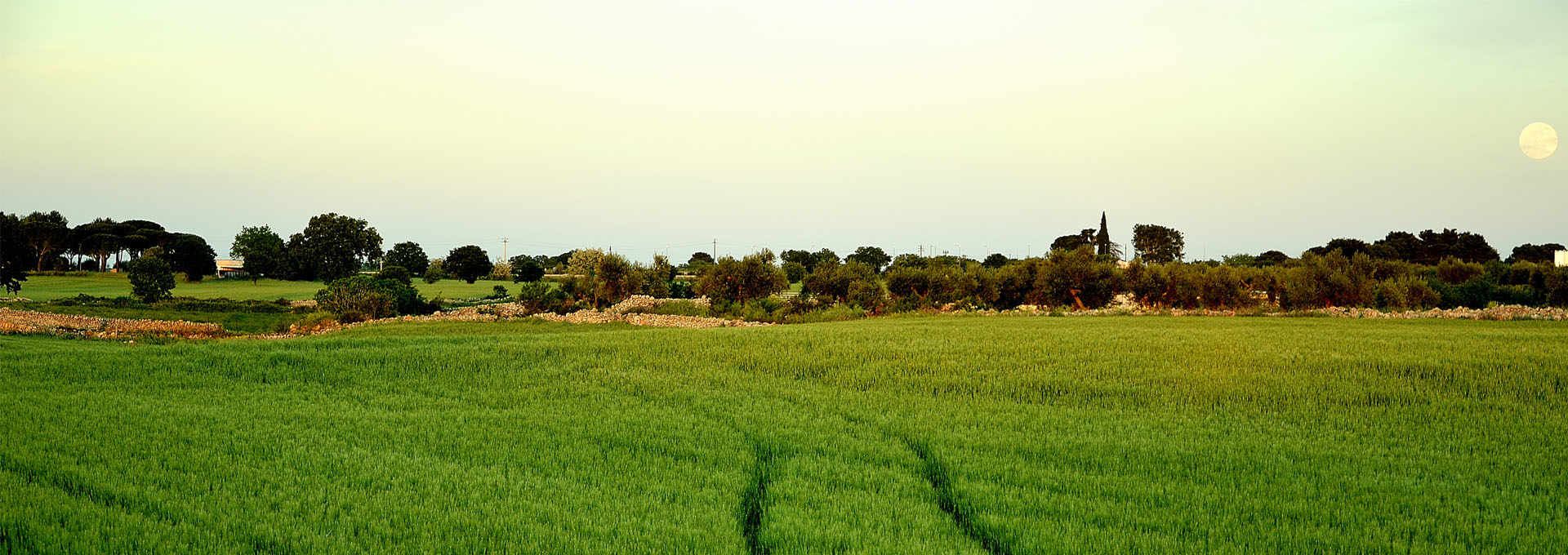 Get more of ArteCibo delivered to your inbox
Get more of ArteCibo delivered to your inboxSign up for free newsletter

The Lower Murgia is a fertile and densely populated section of the Murge Plateau, located in Puglia, south of Bari. The area, once covered in forests, is now filled with crops, pastures, vineyards and orchards. The great quantity of stones quarried for the creation of farmland was used to build the traditional conical-roofed trulli houses, masserie (the traditional farmsteads), and the walls enclosing the fields. The country roads running across the crops describe the are of the Trulli and Barsento Land, protected and promoted by the Bassa Murgia Local Action Group (GAL).
Typical products of the Lower Murgia
The dairy products stand out amongst the numerous specialities, namely the treccia, a plated mozzarela, ricotta, burrata, podolico and canestrato cheese. The traditional taralli biscuits have now become popular worldwide in a wide array of flavours, from olive oil to fennel seed, from onion to tomato. Bread is best represented by the walnut-rich pane di noci and the spiral-shaped Sammichele di Bari focaccia. Fresh pasta is another trademark of the region, with the traditional ear-shaped orecchiette, usually served with tomato, meat or mushroom sauces, or, most notably, with cime di rapa - turnip tops (or greens). Bean soups are equally renowned, and so are the meats of the horse and the donkey, and the Sammichele di Bari zampina sausage. Fruits include table and wine grapes, apricots, percoche (a cross between peaches and apricots), figs and cherries, of which the Ferrovia is the most prominent cultivar.
The wines of the Lower Murgia
The Lower Murgia is also the land of a number of remarkable wines, from the Gioia del Colle Primitivo red wine to the Aleatico sweet dessert wine, both of which have been granted a Protected Designation of Origin. The territory benefits from a warm and dry climate, due to its favourable location between the Adriatic and the Ionian sea. The fragmented nature of the soil provides a natural draining system and determines a better aeration of the roots, imparting freshness and minerality to the grapes and, consequently, to the wines.
